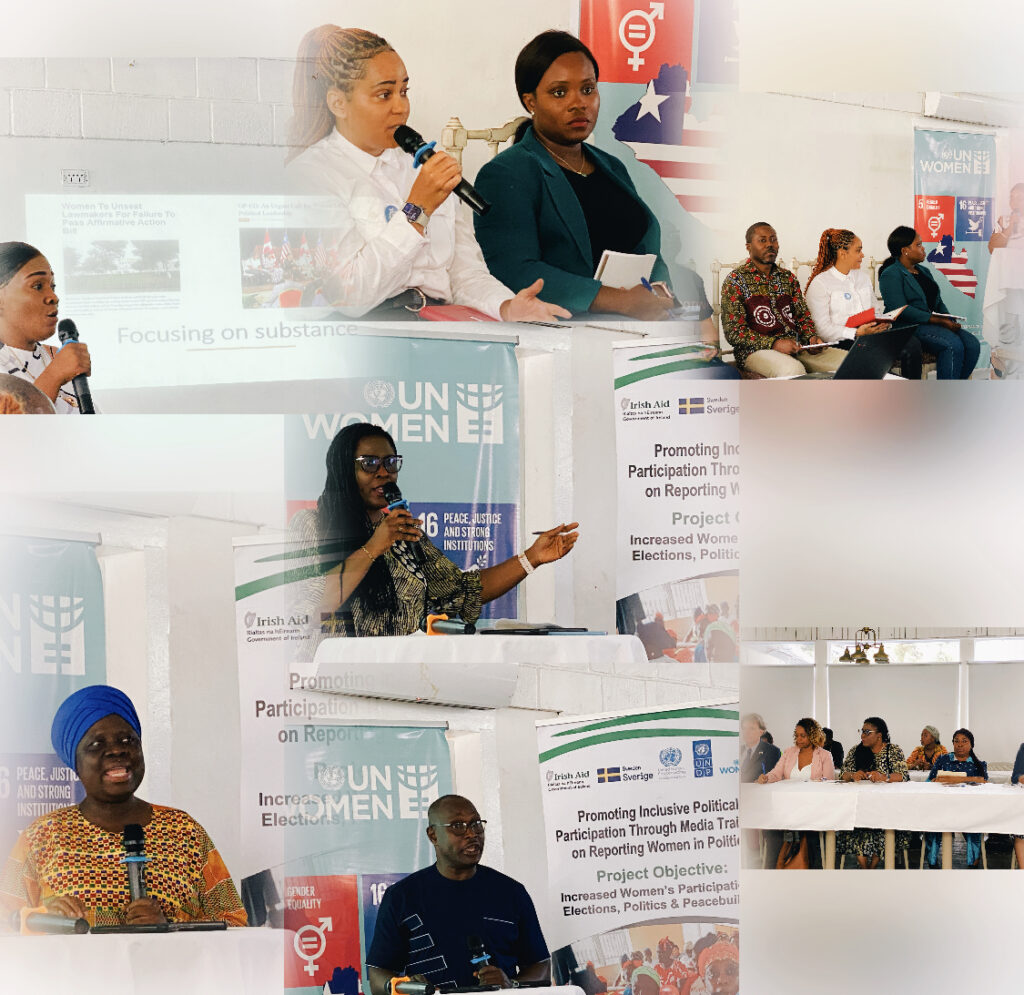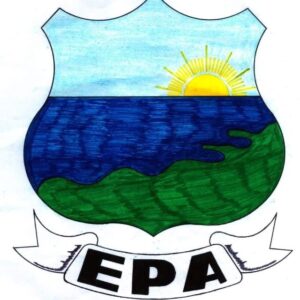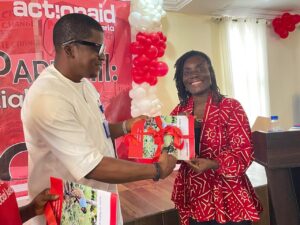UN Women & Partners Lead High Level Media Confab on Gender Responsive Reporting

Liberia March 16, 2023): UN Women in collaboration with the Center for Media Studies and Peace building (CEMESP) with support from Irish Aid, UNDP and UN Peacebuilding Fund on March 16, 2023 ended a one day high-Level meeting aimed at examining the critical role of the Liberian media in promoting gender responsive reporting during elections in the digital age.
The meeting which brought together media managers, women leaders and international partners was in commemoration of the International Women’s Day (IWD) and the women’s month. This year, IWD is commemorated under the global theme “DigitALL: Innovation and Technology for Gender Equality” and the national theme, “Innovating with technology to promote gender equality.
During the opening of the meeting UN Women Deputy Country Representative Ms. Yemi Falayajo challenged the media to serve as civic educator towards the 2023 general elections. “The media can promote public awareness and take actions to mitigate gender-based stereotypes and violence against women in politics, develop media campaigns and increase the visibility of women’s empowerment initiatives to tackle violence against women in politics.”
As part of the meeting, panel discussants including Cornelia Kruah, Aspirant Montserrado District 13, Karishma Pelham Raad, Aspirant, District 10 Montserrado County; Mr. Bai Best, Managing Director at Liberian Observer Corporation; and Ms. Tetee Karneh, Manager of Spoon FM observed that though there is an open media space for women in politics, negative portrayals and gender stereotypes are hampering the advancement of women in politics.
The Panelists observed that cultural barriers, sexisms and poor gender lenses from media reports are contributing to the low representation of women in Politics and leadership.
Both Aspirants Cornelia and Karishma admitted to fear factor and lack of confidence with some women politicians to engage with the media. “ There may be educated and uneducated women in politics and they are most times afraid of the backlashes of the reports the media would give to the public about them”, Cornelia noted.
“I have enjoyed the confidence of the media since my journey two a years ago into politics but the cyber bullying, name tag and my political party inner fight have been overwhelming”, Karishma added.
Together with the two media managers, Bai and Tetee, the panelists called on the Liberian to ensure proper visibility of women and their concerning issues to be highlighted everytime in order to increase women’s participation in national leadership.
In remarks, international partners urged the media to serve as a tool through which women and other marginalized population issues are advanced to make the news headlines.
“The attacks against women must end. Men must see women as their counterparts and not mates. The attacks are too many on a daily basis, Women are equally qualify to participate in politics, give them the platform to express themselves, don’t cut them off, don’t shut them up, don’t tarnish them so that they stay out of the media”, Liberian Journalist Eva Flomo on behalf of ECOWAS Ambassador Josephine Nkrumah.
“USAID is happy to partner in program that addresses challenges to women political participation. Primarily we are complementing LEON’s women political participation expert with women political participation mapping activity that delves into the challenges of women political participation in advance of the 2023 election,” Mandy Dagold, Deputy Director USAID Liberia laments.
For US Deputy Chief of Mission Joe Maybury, the media should remain constructive in their criticisms towards all sides in its reportage. “Don’t give a past because it is a women. Treat everyone fairly, provide the space for not only women candidates but male allies.”
Also speaking, Deputy Gender Minister for Children and Social Protection Madam Alice Johnson Howard noted that the media must be a caravan inclusive participation and prevent violence against women in elections. “We know the statistics in the national Legislature for women representation is under 11% of the seats occupied by women but the media can ensure those numbers are doubled provided the equal space is given”, Alice Johnson Howard said.
Despite Liberia producing Africa’s first female president and currently having a female vice president, women are still grossly underrepresented in the legislature. Women make up less than 11 percent of the 103 seats in the National Legislature. Out of 73 members in the House of Representatives, only nine (9) are women (12.3 percent) while there are only two women among the thirty (30) Senators (7 percent). Additionally, only 5 of 19 cabinet ministers, 24.5 percent of deputy minister positions, and 25.9 percent of assistant ministers are women.
Many African countries like Rwanda are providing women more spaces and bigger opportunities to lead in parliament, in active ministerial roles as well as at local levels. Liberia is encouraged to emulate such standards or even do better. Supporting women in leadership provides a clearer pathway for good governance and better development outcomes.
Several factors including lack of enforceable temporary special measures, discriminatory norms, attitudes, and practices, including violence and a lack of political will are hindering women’s effective participation as citizens in governance and decision-making processes, and in politics in Liberia.
Accordingly, the media often miss these stories because reporting on politics and elections, like many other issues, remains gender blind. This, according to UN Women, is also exacerbated by the underrepresentation of women in media.
The Press Union of Liberia estimates, about 20% of Liberia’s journalists are female, and only 5% of the editorial and management posts are held by women. The underrepresentation and misrepresentation of women in Liberian politics and news media contributes to the perpetuation of negative stereotypes about women leading in public and political life.
The media can play a key role by highlighting these major factors and issues. While reporting on politics and elections, the media can put the spotlight on systemic challenges in politics and electoral processes which prevent not only women, but also many other vulnerable groups in society.



